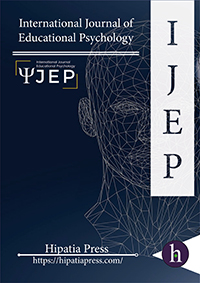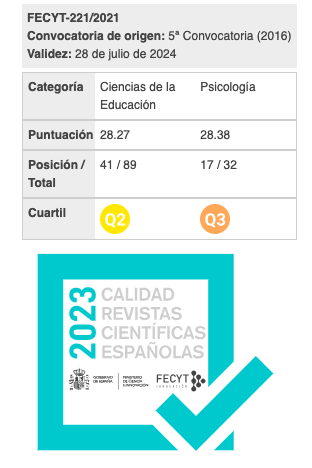NNESTs’ Professional Identity in the Linguistically and Culturally Diverse Classrooms
Keywords:
Downloads
Abstract
This study examines NNESTs’ professional identities as classroom teachers by analyzing NNESTS’ perceptions of their strengths and challenges. The study contributes to NNESTs forming their professional identity by recognizing, developing, and contesting authoritative discourse. A basic qualitative research design is employed to analyze the interview data. Participants are five NNESTs who teach in American classrooms. Three focused themes are identified; linguistic competence, cross-cultural competence, and pedagogical competence. NNEST superiority fallacy is added as the fourth theme. Additionally, the study briefly compares strengths and challenges of U.S. versus foreign graduates. NNESTs’ strengths and challenges are reported in line with other NNEST researchers: dual-language acquisition and cross-cultural experience, grammar knowledge, linguistic theories, and coping strategies as strengths, poor command of English language, lack of sociocultural strategies, and lack of confidence as weaknesses. New findings include NNESTs’ confidence as effective teachers with accent, intellectual competence in theories, and stronger credentials. This study asserts that the NNESTs’ multilingual and multicultural backgrounds can become valuable assets with less linguistic prejudice, and the need for a policy that provides the benchmark to measure their credentials rather than depending on biased assumptions. Suggestions to shape NNESTs’ professional identity are providedDownloads
References
American Council on the Teaching of Foreign Languages (ACTFL) (1996). ACTFL proficiency scale. Retrieved from http://www.languagetesting.com/actfl-proficiency-scale
Google Scholar CrossrefAmin, N. (1997). Race and the identity of the nonnative ESL teacher. TESOL Quarterly, 31, 580-583.
Google Scholar CrossrefBraine, G. (1999). Nonnative educators in English language teaching. Mahwah, NJ: Lawrence Erlbaum.
Google Scholar CrossrefBrutt-Griffler, J., & Samimy, K. (1999). Revisiting the colonial in the
Google Scholar Crossrefpostcolonial: Critical praxis for non-native-English-speaking teachers in a
Google Scholar CrossrefTESOL program. TESOL Quarterly, 33, 413–431.
Google Scholar CrossrefButler, Y. (2007). How do young learners perceive nonnative-English-speaking teachers? TESOL Quarterly, 41(4), 731-755.
Google Scholar CrossrefCanagarajah, S. (1999). Interrogating the “native speaker fallacy”: Non-linguistic roots, non-pedagogical results. In G. Braine (Ed.), Non-native educators in English language teaching. Mahwah, NJ: Lawrence Erlbaum.
Google Scholar CrossrefClark, E., and Paran, A. (2007). The employability of non-native speaker teachers of EFL: A UK survey. System, 35(4), 407-430.
Google Scholar CrossrefCook, V. (2005). Basing teaching on the L2 user. In E. Llurda (Ed.), Non-native language teachers: Perceptions, challenges, and contributions to the profession (pp. 47-61). New York: Springer.
Google Scholar CrossrefCreswell, J. W. (2012). Educational research: Planning, conducting, and evaluating quantitative and qualitative research. Boston, MA: Pearson Education, Inc.
Google Scholar CrossrefCummins, J. (2000). Language, power, and pedagogy: Bilingual children in the crossfire. New York: Multilingual Matters Ltd.
Google Scholar CrossrefDerwing, T. M., and Munro, M. J. (1997). Accent, intelligibility, and comprehensibility. Studies in Second Language Acquisition, 19(1), 1-16.
Google Scholar CrossrefEchevarria, J., Vogt, M., and Short, D. (2008). Making content comprehensible for English learners: The SIOP model. New York: Pearson.
Google Scholar CrossrefGolombek, P., & Jordan, S. (2005). Becoming ‘black lambs’ not ‘parrots’: A
Google Scholar Crossrefpoststructuralist orientation to intelligibility and identity. TESOL Quarterly,
Google Scholar Crossref, 513–533.
Google Scholar CrossrefGómez, L, Freeman, L., and Freeman, Y. (2005). Dual language education: A promising 50-50 model. Bilingual Research Journal, 29(1), 145-164.
Google Scholar CrossrefGreen, A., and Preston, J. (2005). Editorial: Speaking in tongues – diversity in mixed
Google Scholar Crossrefmethods research. International Journal of Social Research Methodology, 8(3), 167-171.
Google Scholar CrossrefHadley, A. O. (2001). Teaching language in context (3rd ed.). Boston, MA: Heinle and Heinle.
Google Scholar CrossrefHolliday, A. (2005). The struggle to teach English as an international language.
Google Scholar CrossrefOxford: Oxford University Press.
Google Scholar CrossrefIlieva, R. (2010). Non-native English-speaking teachers’ negotiations of program discourses in their construction of professional identities within TESOL program. Canadian Modern Language Review, 66(3), 343-369.
Google Scholar CrossrefKachru, B. (1985). The alchemy of English: The spread, functions and models of non- native Englishes. Oxford: Pergamon Press Ltd.
Google Scholar CrossrefKamhi-Stein, L. (1999). Preparing the non-native professionals in TESOL: Implications for teacher education programs. In G. Braine (Ed.), Nonnative educators in English language teaching (pp. 145-158). Mahwah, NJ: Erlbaum.
Google Scholar CrossrefKirkpatrick, A. (2007). World Englishes: Implication for international communication and English language teaching. Cambridge: Cambridge University Press.
Google Scholar CrossrefKirkpatrick, A. (2006). Teaching English across cultures. What do English language teachers need to know to know how to teach English? A paper presented at the English Australia Conference, September, Perth, and Western Australia.
Google Scholar CrossrefLippi-Green, R. (1997). English with an accent: Language, ideology, and discrimination in the United States. New York: Rutledge.
Google Scholar CrossrefLiu, D. (1998). Ethnocentrism in TESOL: Teacher education and the neglected
Google Scholar Crossrefneeds of international TESOL students. ELT Journal, 52, 3–10.
Google Scholar CrossrefLlurda, E. (2004). Non-native-speaker teachers and English as an international language. International Journal of Applied Linguistics, 14(3), 314-323.
Google Scholar CrossrefLlurda, E., and Huguet, A. (2003). Self-awareness in NNS EFL primary and secondary school teachers. Language Awareness, 13, 220-235.
Google Scholar CrossrefMa, L. P. F. (2012). Strengths and weaknesses of NESTs and NNESTs: Perceptions of NNESTs in Hong Kong. Linguistics and Education, 23, 1-15. doi: 10.1016/j.linged.2011.09.005
Google Scholar CrossrefMadrid, D., and Perez Canado, M. (2004). Teacher and student conferences of native and nonnative foreign language teachers. Porta Linguarum, 2, 125-138.
Google Scholar CrossrefMaum, R. (2002). Nonnative English-speaking teachers in the English teaching profession. Eric Digest. Retrieved from http://www.cal.org/resources/digest/digest_pdfs/0209maum.pdf
Google Scholar CrossrefMcDonald, R., and Kasule, D. (2005). The monitor hypothesis and English teachers in Botswana: Problems, varieties and implications for language teacher education. Language, Culture and Curriculum, 18(2), 118-200.
Google Scholar CrossrefMedgyes, P. (1994). The non-native teacher. London: Macmillan.
Google Scholar CrossrefMedgyes, P. (2001). When the teacher is a non-native speaker. Teaching English as a Second or Foreign Language, 5, 429-442.
Google Scholar CrossrefMerriam, S. B. (2009). Qualitative research: A guide to design and implementation. San Francisco: Jossey-Bass/Wiley.
Google Scholar CrossrefMorita, N. (2000). Discourse socialization through oral classroom activities in a
Google Scholar CrossrefTESL graduate program. TESOL Quarterly, 34, 279–310.
Google Scholar CrossrefMoussu, L. (2006). Native and nonnative English-speaking English as second language teachers: Students’ attitudes, teacher self-perceptions, and Intensive English administrator beliefs and practices. (Unpublished doctoral dissertation). Purdue University, West Lafayette, IN.
Google Scholar CrossrefMoussu, L., and Llurda, E. (2008). Nonnative English-speaking English language teachers: History and research. Language Teaching, 41(3), 315-348.
Google Scholar CrossrefNorton, B. (2000). Identity and language learning: Gender, ethnicity and educational
Google Scholar Crossrefchange. London: Longman.
Google Scholar CrossrefPatton, Q. P. (2002). Qualitative research and evaluation methods. Thousand Oaks, CA: Sage Publications, Inc.
Google Scholar CrossrefPavlenko, A. (2003). ‘I never knew I was bilingual’: Reimagining teacher
Google Scholar Crossrefidentities in TESOL. Journal of Language, Identity, and Education, 2, 251–268.
Google Scholar CrossrefPhillipson, R. (1992). Linguistic imperialism. Oxford: Oxford University Press.
Google Scholar CrossrefPhillipson, R. (1996). ELT: The native speaker’s burden. In T. Hedge and N. Whitney (Eds.), Power, pedagogy and practice (pp. 23-30). Oxford: Oxford University Press.
Google Scholar CrossrefRajagopalan, K. (2005). Non–native speaker teachers of English and their
Google Scholar Crossrefanxieties. In E. Llurda (Ed.), Non-native language teachers: Perceptions,
Google Scholar Crossrefchallenges and contributions to the profession (pp. 283–304). New York:
Google Scholar CrossrefSpringer.
Google Scholar CrossrefRao, Z. (2002). Chinese students’ perceptions of communicative and non-communicative activities in EFL classroom. ELSEVIER, 30(1), 85-105.
Google Scholar CrossrefReis, D. S. (2011). “I am not alone”: Empowering non-native English-speaking teachers to challenge the native speaker myth. In Johnson, K E., and P. R. Golombek (Eds.), Research on second language teacher education: A sociocultural perspective on professional development (pp. 31-49). New York: Routledge.
Google Scholar CrossrefReves, T., and Medgyes, P. (1994). The non-native English speaking EFL/ESL teacher’s self image: An international survey. System, 22(3), 353-357.
Google Scholar CrossrefStake, R. E. (2010). Qualitative research: Studying how things work. New York, NY: The Guilford Press.
Google Scholar CrossrefSubtirelu, N. (2011). Juggling identity and authority: A case study of one non-native instructor of English. TESL-EJ, 15(3). Retrieved from http://www.teslej.org/wordpress/issues/volume15/ej59/ej59a2/
Google Scholar CrossrefTang, C. (1997). On the power and status of non-native ESL teachers. TESOL Quarterly, 31, 577-580.
Google Scholar CrossrefVarghese, M., Morgan, B., Johnston, B., & Johnson, K. (2005). Theorizing
Google Scholar Crossreflanguage teacher identity: Three perspectives and beyond. Journal of
Google Scholar CrossrefLanguage, Identity, and Education, 4, 21–44.
Google Scholar CrossrefDownloads
Published
Almetric
Dimensions
How to Cite
Issue
Section
License
All articles are published under Creative Commons copyright (CC BY). Authors hold the copyright and retain publishing rights without restrictions, but authors allow anyone to download, reuse, reprint, modify, distribute, and/or copy articles as the original source is cited.
















